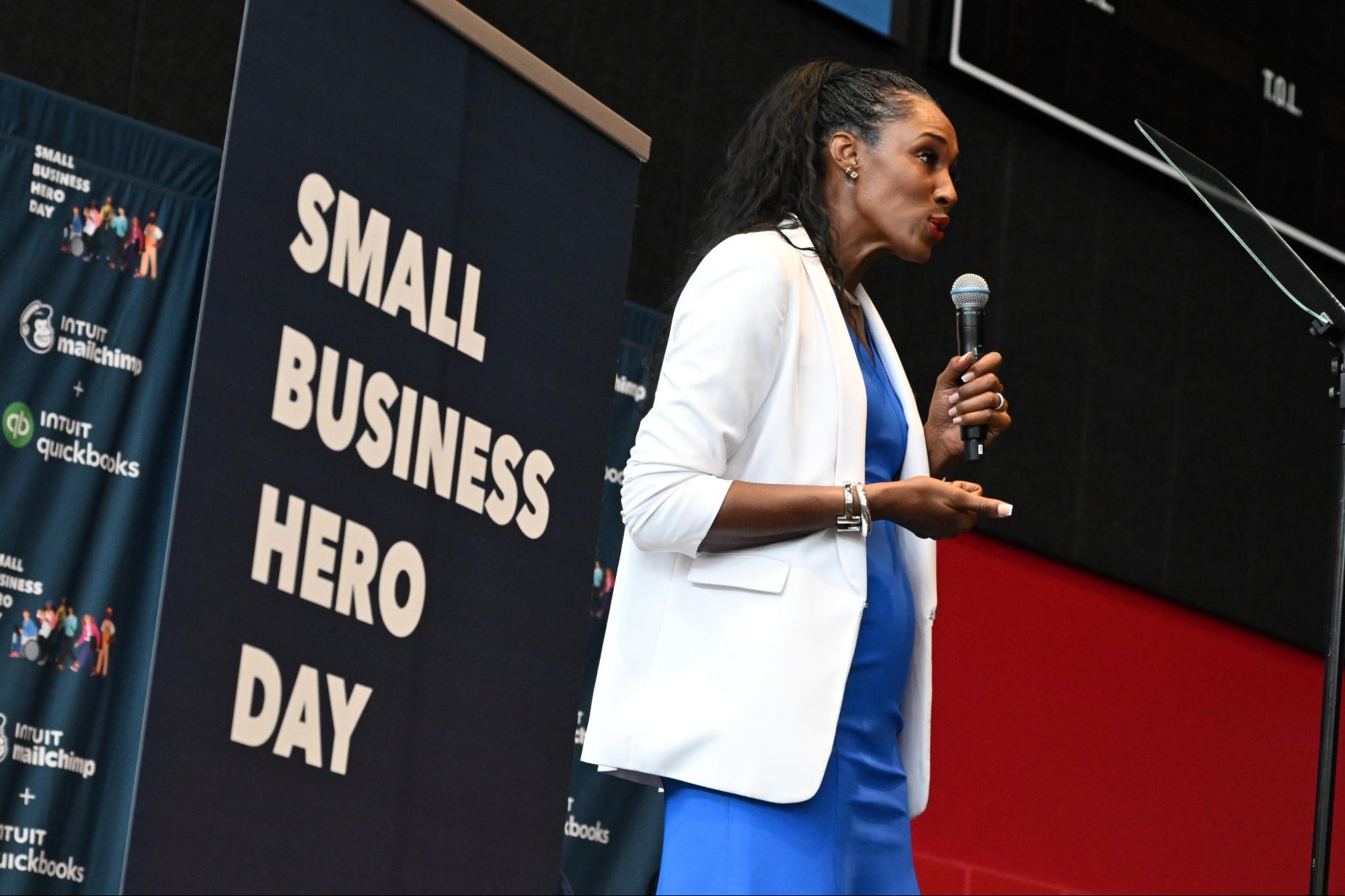Opinions expressed by Entrepreneur contributors are their own.
Recently, I had to give someone tough feedback. And let me tell you, I did not want to have that conversation.
You might find it ironic since I literally wrote a book about owning everything in your life, including your feedback. That’s what my first book, The Ownership Mindset, is all about. As I work through the first round of edits on my second book, which is dedicated entirely to feedback, you’d think giving it would come more easily to me. But even after years of leading teams and teaching people about feedback, these conversations still give me butterflies from time to time.
As I prepared for this conversation, doubts swirled through my mind. Would this person lose respect for me? Would our relationship suffer? Would they feel hurt or misunderstood? I felt a familiar knot in my stomach and my heart started racing.
At that moment, I recalled hearing Brené Brown briefly discuss courage as a combination of vulnerability and integrity during a podcast. Her mention of that idea resonated deeply with me and inspired me to lean into it more intentionally.
Since then, I’ve adopted this simple yet powerful formula in my leadership: Courage = vulnerability + integrity. Repeating this mantra helped me calm my nerves, gather my thoughts and have the honest conversation I knew needed to happen.
Related: 6 Steps to Offering Tough Feedback, and Why It’s a Crucial Skill for Every Leader
Why vulnerability and integrity are at the heart of courage
Vulnerability means allowing people to see the real you. It means sharing your fears, admitting uncertainty and acknowledging mistakes, rather than pretending to have it all together. Vulnerability isn’t weakness; it’s authenticity.
Integrity means consistently acting in accordance with your values, even when it feels risky or difficult. Integrity isn’t perfection; it’s about honesty, consistency and accountability.
When you combine vulnerability and integrity, you achieve courage … the kind of quiet courage that fosters trust, respect and deeper connections with the people around you.
Courage matters deeply in leadership
Leadership isn’t about always having the answers or maintaining perfect composure. True leadership is about forming meaningful connections, fostering trust and demonstrating respect. Nothing creates these more effectively than leading courageously, especially when you feel uncomfortable or uncertain.
I’ll never forget the day we decided to shift our business model at StoneAge from selling through distributors to working directly with our customers. Internally, the decision wasn’t easy. Some people strongly disagreed, and a valued colleague ultimately chose to leave the company. It hurt, and I felt vulnerable. Yet, I knew deep down it was the right move. It aligned with our values of innovation, customer connection and employee ownership. Taking that step was scary, but it ultimately paid off, strengthening our relationships, driving company growth and fostering a positive culture.
Brené Brown sums up this kind of moment beautifully: “Vulnerability is not winning or losing; it is having the courage to show up when you cannot control the outcome.”
4 steps you can take right now to become a more courageous leader
Building courage isn’t a one-time thing. It’s a habit you cultivate intentionally every day. Here are four practical ways you can build your courage habit starting right now:
1. Practice small acts of courage. Start small. Admit when you’re unsure, own a mistake or share something personal with your team. Small moments of vulnerability build courage over time.
2. Pause before responding. When you feel pressure, pause and ask yourself, “What would courage look like right now?” That simple question helps you respond intentionally, rather than reacting impulsively.
3. Daily courage reflection. Every day, reflect by asking yourself three questions:
- Where did I show courage today?
- Where did I hold back due to discomfort?
- How can I be more courageous next time?
This reflection enhances self-awareness and reveals opportunities to lead with greater courage.
4. Clarify and live your core values. Identify your top three core values. Use them as your compass when facing difficult decisions. Living in alignment with your values is what integrity is all about.
Related: This One Act of Courage Completely Shifted My View on Leadership
Coming full circle: The feedback conversation
Now, here’s how that recent feedback conversation turned out:
When I finally sat down and had the difficult conversation, it went incredibly well. The person received my feedback graciously, openly and thoughtfully. We had a productive discussion that strengthened our relationship and fostered deeper trust. Once again, the story I had created in my mind beforehand was inaccurate and caused me unnecessary stress. Isn’t that so often the case?
This experience reinforced something essential for me: Courageous leadership doesn’t mean you’re never afraid. It means choosing honesty and authenticity even when fear is present. When we lead courageously, we foster stronger relationships, healthier teams and more vibrant cultures.
So here’s my invitation to you: What’s one truth you’ve been avoiding? What’s one conversation you know you must have but keep postponing?
Take a deep breath, lean into vulnerability, trust your integrity and step forward courageously. Because that is how you build genuine respect, trust and connection. That’s how you lead with heart. And that’s how you inspire meaningful, lasting change.
Recently, I had to give someone tough feedback. And let me tell you, I did not want to have that conversation.
You might find it ironic since I literally wrote a book about owning everything in your life, including your feedback. That’s what my first book, The Ownership Mindset, is all about. As I work through the first round of edits on my second book, which is dedicated entirely to feedback, you’d think giving it would come more easily to me. But even after years of leading teams and teaching people about feedback, these conversations still give me butterflies from time to time.
As I prepared for this conversation, doubts swirled through my mind. Would this person lose respect for me? Would our relationship suffer? Would they feel hurt or misunderstood? I felt a familiar knot in my stomach and my heart started racing.
The rest of this article is locked.
Join Entrepreneur+ today for access.








